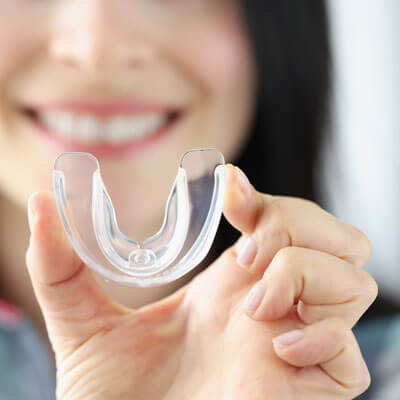Occlusal Splints and Nightguards

Teeth grinding, also known as bruxism, is a common problem that affects many people. Fortunately, there is a solution to prevent further damage to your teeth and relieve discomfort: nightguards and occlusal splints.
What are Nightguards and Occlusal Splints?
Nightguards and occlusal splints are custom-made devices that fit over your teeth to protect them from grinding and clenching. They are usually made of acrylic and are worn during sleep to prevent damage to teeth caused by the excessive force generated during teeth grinding or clenching.
If you tend to clench or grind your teeth subconsciously, mostly at night time, and have ruled out all possible causes and treatments, this is the next step to try and prevent further damage to the teeth. The devices also help to stretch the muscles of mastication out, relieving tension in the muscles.
The Process of Getting Nightguards and Occlusal Splints
The process of getting nightguards and occlusal splints is simple and painless. We’ll start by taking an impression or scan of your teeth to create a custom-fit device. The second appointment is the delivery of the appliance, where we’ll fit it in and ensure the bite and comfort are satisfactory.
Caring for Nightguards and Occlusal Splints
Written instructions and proper guidance will be given to patients on how to wear, clean, and maintain the device. It is important to bring the device to every dental visit, regardless of the reason for the visit, to ensure that it still fits properly. Depending on how regularly the patient grinds or clenches, the dentist will assess the device and decide when a replacement is necessary.
Ready to Book Your Visit?
If you experience symptoms such as headaches, jaw pain, or tooth sensitivity, talk to us about getting a custom-fit device. With proper care and maintenance, nightguards and occlusal splints can provide relief and protect your teeth for years to come.
Any invasive or surgical procedure may carry risks. Before moving forward, it is recommended that you seek a second opinion from an appropriately licensed medical professional.

